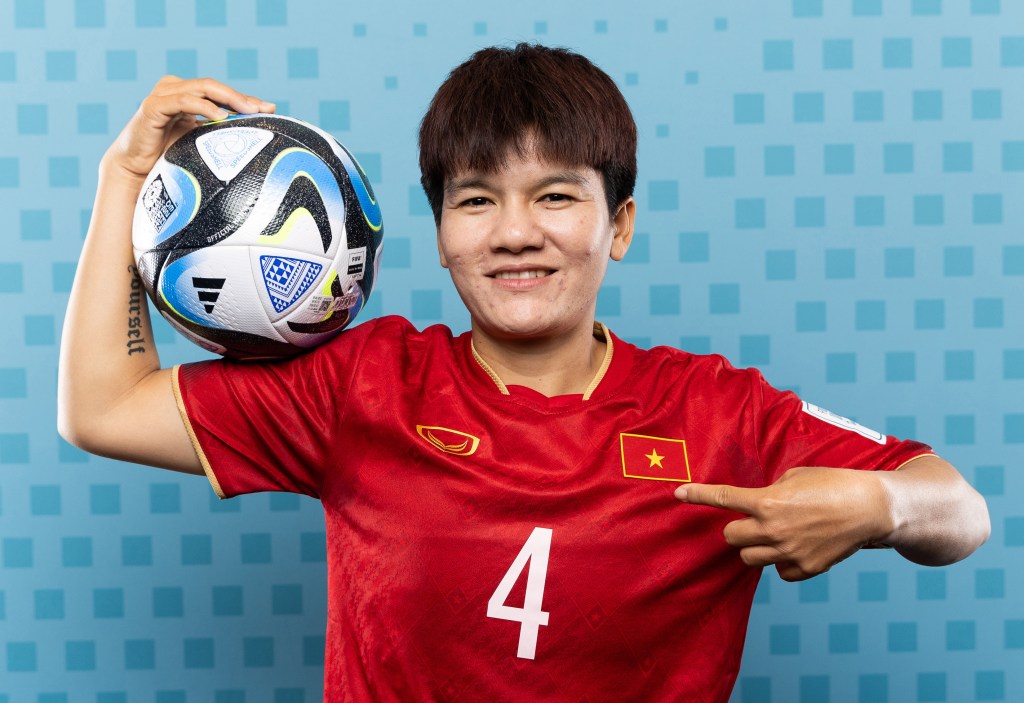Vietnam football star marries girlfriend in LGBTQ+ sporting first

Tran Thi Thu and Nguyen Thi Thuong married on 6 Jan 2024. (Nguyen Thi Thuong / Facebook)
A member of Vietnam’s women’s national football team has married her partner in an LGBTQ+ sporting first for the country.
The first weekend of 2024 saw 33-year-old defender Tran Thi Thu – who played for her country at the 2023 FIFA Women’s World Cup – marry her partner Nguyen Thi Thuong in Ho Chi Minh City, with many of the squad’s member’s in attendance at the ceremony.
VN Express International reports that this is the first time a female Vietnamese football player has “publicly married a partner of the same sex”.
Currently, Vietnam does not recognise same-sex marriages but symbolic same-sex weddings are permitted in the southeast Asian nation.
In Asia, Taiwan and Nepal are the only countries which have legalised equal marriage, although activists in a number of nations across the region are vigorously campaigning for equality for LGBTQ+ couples.

Tran Thi Thu, who has played for the national squad since 2017, wrote on her Facebook page: “I would like to send my sincere thanks to relatives on both sides of the family, friends near and far, and colleagues who took some time to come celebrate and give congratulations.
“Best wishes to us. The wedding was a great success.”
Vietnam’s success of reaching the World Cup for the first time when they qualified for the 2023 tournament was overshadowed when they lost every match they played in the group stage, finishing at the bottom of Group E without any goals.
In 2022, Vietnam’s health ministry declared that being LGBTQ+ is “not an illness”, which was a major step forward for LGBTQ+ rights in the nation.
Being LGBTQ+ is “entirely not an illness” and “cannot be ‘cured’ nor need[s] to be ‘cured’ and cannot be converted in any way”, the ministry said in an official document.
The directive outlined to medical professionals that they must not “interfere nor force treatment upon these groups”. The health ministry advised that if any support is needed, it should be in the “form of psychological assistance and performed only by those who have the knowledge of sexual identity”.

